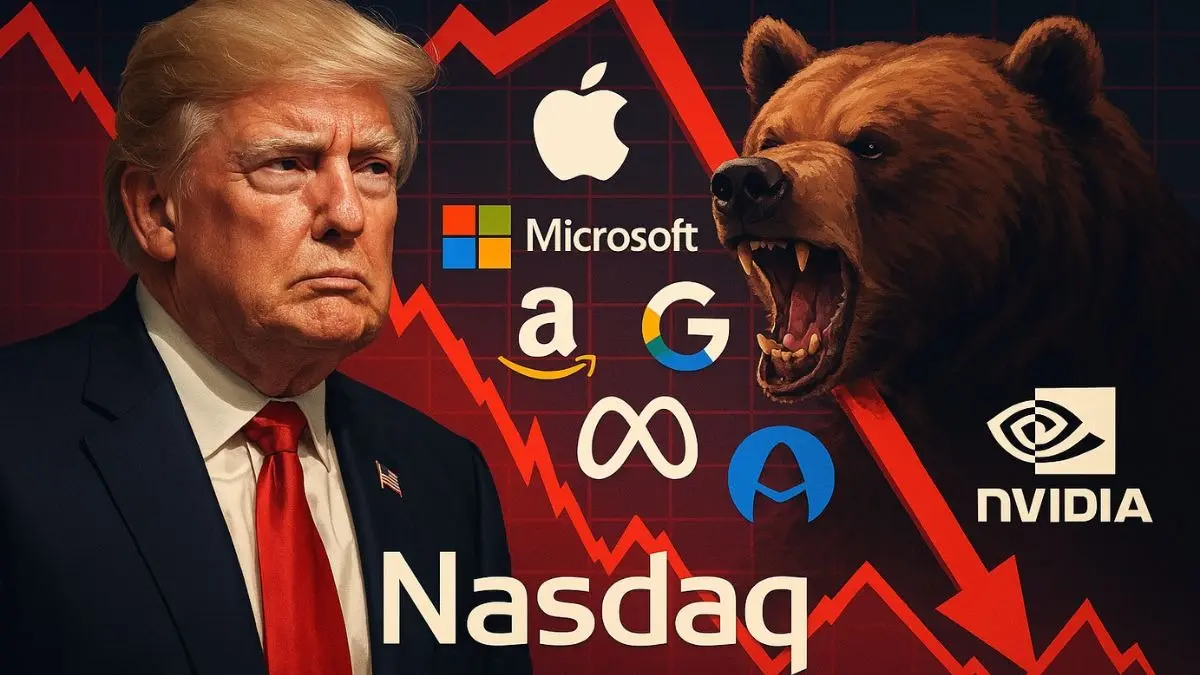Updated 5 April 2025 at 08:52 IST
Trump’s Tariff Shock: How the Nasdaq Entered a Bear Market — and What Role the Magnificent 7 Played
The increasing trade tensions and their effects on big tech stocks highlight the delicacy of the current economic environment, with market participants followin
- Republic Business
- 2 min read

The Nasdaq Composite has formally crossed into bear market territory, falling more than 20% from its peak in December of 2024. The drop comes on the heels of recently imposed reciprocal tariffs by President Donald Trump, fueling widespread anxiety about a worldwide recession.
Effects on the Magnificent 7
The "Magnificent 7"Apple, Microsoft, Amazon, Alphabet, Meta Platforms, Tesla, and Nvidia—have been most impacted:
Apple (AAPL): Sank 12% as concerns about supply chain disruptions and access to the Chinese market fell back.
Microsoft (MSFT): Suffered in step with broader tech sector sell-offs.
Advertisement
Amazon (AMZN): Struggled as higher tariffs could swell operating costs.
Alphabet (GOOGL): Parent to Google had stock affected by volatility in the markets.
Advertisement
Meta Platforms (META): Fell on fear of ad revenues in a weak economy.
Tesla (TSLA): Fell 13.1%, guided by decelerating sales and political issues.
Nvidia (NVDA): Down 13.6%, as tariffs hit its semiconductor supply chain.
Market Reactions and Economic Outlook
The S&P 500 and Dow Jones Industrial Average have also incurred heavy losses, with the S&P 500 declining 6% and the Dow losing 2,231 points (5.5%). Analysts caution that the tariffs would cut tech earnings by 15%, rattle supply chains, and nudge the economy into recession or stagflation.
Market: Investor Sentiment
Retail investors have continued to "buy the dip," investing a record $4.7 billion in one day, even as the markets continue to fall. But the tactic has come at a huge cost, with individual investors falling 12.9% this year to date versus the S&P 500's 8.3% decline.
Calls for Policy Adjustments
Former Goldman Sachs CEO Lloyd Blankfein has called on President Trump to postpone imposing further tariffs by six months to enable trade talks, noting the potential receptivity of other countries to negotiations.
The increasing trade tensions and their effects on big tech stocks highlight the delicacy of the current economic environment, with market participants following developments closely.
Published By : Musharrat Shahin
Published On: 5 April 2025 at 08:52 IST
